There is nothing worse than being burdened by debt. Fortunately, there are methods and programs that might help reduce the amount you owe to your creditors. If you find yourself deep in debt and unable to meet your financial obligations, debt settlement, may be an option for you to consider. Whether you are working with a debt settlement company or negotiating on your own, the goal of debt settlement is the same, which is to get creditors to mark a debt as paid in exchange for a partial payment.
How Debt Settlement Works
Debt settlement occurs when you pay your creditors a lump sum that is significantly less than what you owe. Settling spiraling debts is sometimes the best solution for creditors, allowing them to recoup at least some of the money you owe them.
But is important to keep in mind that debt settlement has a few major disadvantages:
• Not all debt collectors accept offers to settle debts.
• If they do, you’ll need to save enough money to make the lump sum payment required, which can take years.
• Even if you manage to settle your debt, it is recorded on your credit report, causing your score to drop.
• The forgiven debt can be considered taxable income, unless you qualify for an exclusion.
There are a few ways to initiate the debt settlement process. You can write a debt settlement letter to your creditors, specifying the amount you can afford and stating that this is the sum you’ll pay in order for your debt to be settled. While it’s possible to negotiate a settlement yourself, many people choose to use the services of a debt settlement company. Experienced debt settlement professionals do the difficult work of negotiating with your creditors on your behalf. Reputable companies are transparent about the risks involved, the length of time the process could take and how much it all costs.
Taking the First Steps
If you feel that debt settlement is right for you, there are some steps you can take:
1. Find the right debt settlement company
There are dozens of debt settlement companies out there. Do some research and set up several consultations to ensure you choose a company that’s reputable, trustworthy and affordable. Find out up front how much it’s going to cost, how long it’s going to take and what the risks are. The company should be transparent and give you this information. If they don’t, you should be careful because their may be a likelihood that they could be scammers.
2. Begin saving for your debt settlement
Once you’ve started the debt settlement process, you’re typically advised to halt payments with your creditors. Instead, you should pay into the dedicated account set up by the debt settlement company until that account has reached the agreed amount for the lump sum payment. After about 90 – 180 days, your creditors write off what you owe as bad debt. This is when the debt settlement company approaches your creditors with evidence that you aren’t able to pay, and will start negotiations. During this time, put aside as much money as you can toward your lump sum payment.
3. Accept the settlement offer
Your creditor investigates your case to find out how bad your financial circumstances really are. If they decide that you truly can’t pay, they may send a settlement offer.
4. Pay your creditor
Once you’ve approved the offer, you’ll need to make the lump sum payment.
5. Pay the fees
The final step is to pay the company’s fees, which are usually around 15 – 25 percent of the settled debt.
Types of Eligible Debts
Before deciding whether a settlement is the right choice for you, determine what kind of debt you have. For instance, unsecured debt is often settled, while secured debt almost never is. The most popular kind of debt that is settled is unsecured debt—money owed on credit cards, store cards or unsecured loans. This kind of debt doesn’t have property or other assets secured against it. If you can’t repay the balance and are on course for bankruptcy, the company won’t be able to recover what you owe. If the debt is settled, on the other hand, they recoup at least some of what you owe.
Common types of unsecured debt:
• Credit cards
• Medical bills
• Signature loans
• Gym memberships
• Store cards
• Other unsecured lines of credit
Debt secured against property or other assets, such as mortgages and car loans, is not settled often. This is because the creditor can seize your assets instead. The only circumstances in which secured debt can be settled is if the company has seized your property and you still owe money. In that case, you may need to enter into a settlement with them.
Common types of secured debt:
• Mortgages
• Auto loans
• Government loans
• Secured personal loans
• Tax/IRS debt
Why Work with a Debt Settlement Company?
In some circumstances, whether you can or cannot settle your debt depends on the specific situation. Keep in mind that, usually, you can only settle a debt if you’re experiencing genuine financial hardship. But if you opt to hire a professional debt settlement company, there may be some hope at the end of the tunnel. Suppose you owe $30,000 in credit card debt or other debt and so you hire a debt settlement company to call the creditors and they offer a smaller amount of $16,000 to those creditors.
If the creditors don’t except the reduced amount, you may be forced to file for bankruptcy and those creditors will never get to see their money, in this scenario, those creditors have no choice but to accept the offer if they even want to get some of their money back. So they except the offer, and you get out of debt for $14,000 less than you owed.
To learn more, click here.





